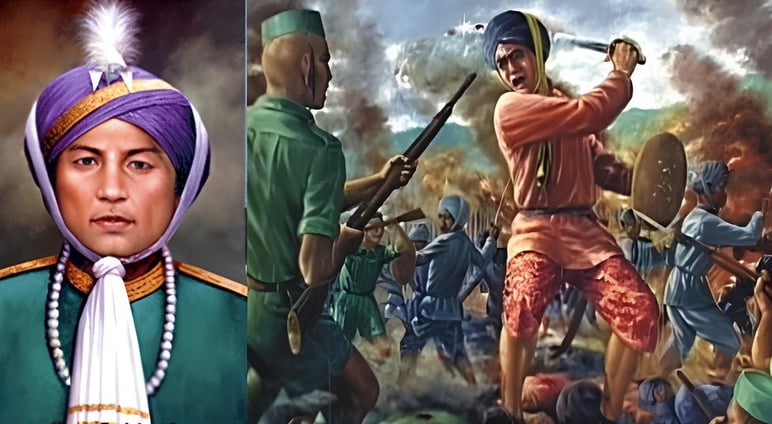Paona Brajabashi
Manipur pays homage to the martyrs of the 1891 Anglo-Manipur War, the last battle fought between the erstwhile Kingdom of Manipur and the British Empire on 23 March every year. This day is observed as “Khongjom Day”. The Khongjom Day observance begins with a gun salute at the samadhi of Paona Brajabasi, who sacrificed his life during the final battle. Floral tributes were paid and traditional rituals including tarpan performed at Khongjom River. Tributes are paid to Bravehearts who sacrificed their lives, fighting for the dignity of Manipur in the 1891 Manipur-Anglo War.
The Anglo-Manipuri war or the Khongjom Battle broke out in 1891. Attempting to resist British forces marching from Tamu (on the border between Manipur and Myanmar today), 400 Manipuri soldiers were dispatched to Thoubal led by Major Paona Brajabashi, a brave soldier of the kingdom of Manipur. Historians describe this as the fiercest battle against the British in Indian history.
Paona Brajabasi, known as Paonam Naol Singh in their childhood was born on 20 December 1823. He became an expert in riding, fencing, and freehand combat. In 1850 he came to Vrindavan to conduct the last rites of his father. In those days it was extremely difficult to make a journey from the northeast to the Hindi heartland. After six years he returned to Manipur and joined king Chandrakirti Singh’s army. As he had travelled to the land of Braj, Vrindavan, he was called Brajabasi.
It was 23 April 1891 when many Bravehearts including Paona Brajbasi fell in the battle. An eyewitness of Paona’s bravery was so moved that he broke into song when talking about it. This ballad style of the song came to be known as Khongjom Parva and is now an integral part of Manipur culture.
Source: CCRT, Ministry of Culture, Govt. of India



